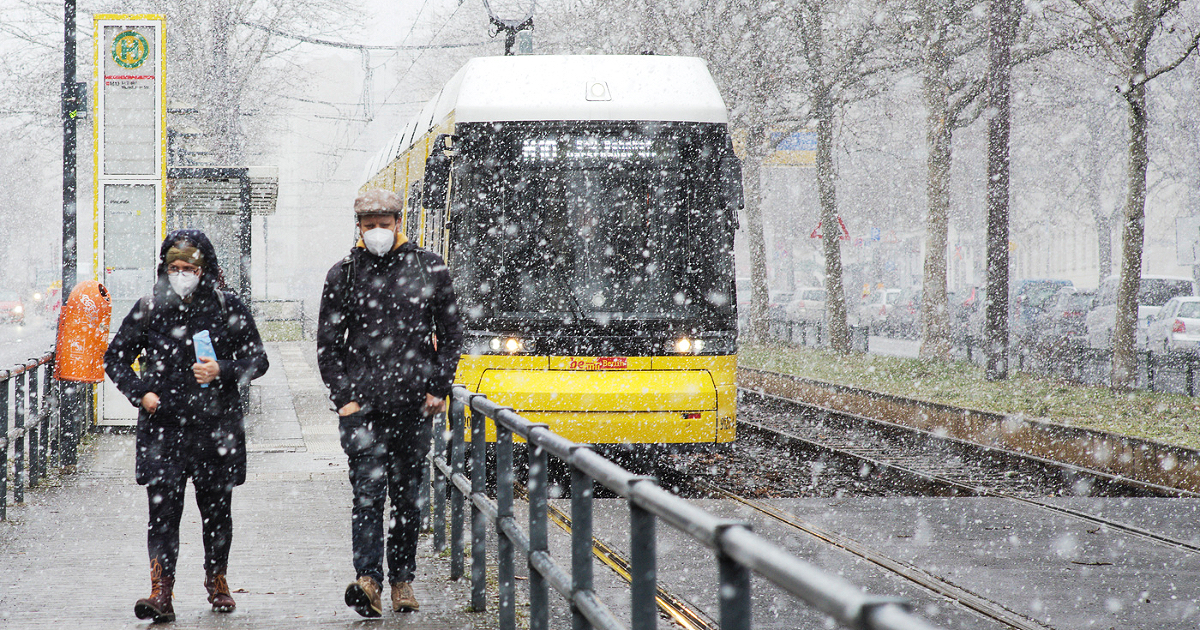In Germany the Federal Councilthe second branch of Parliament, has given the definitive green light to the transport ticket valid throughout the national territory a 49 euros per month. The new single ticket is linked to the experiment carried out in 2022 with the fare at 9 euros for three months and promises to revolutionize public transport. The sale will begin on Monday 3 April, also through the commercial channels of the railways, but several municipal transport companies, certain of the final approval, had already started accepting pre-orders. It will essentially be a subscription in digital form, downloadable to your mobile phone, which extends automaticallybut can be canceled on a monthly basis. From this summer it will also be offered as a card with a rechargeable microchip and can only be purchased immediately in the form of a paper ticket (a solution destined to disappear).
It will be valid throughout the country on trams, buses, subways, light rail and rail links as well as regional trains. Only intercity, eurocity, intercity express trains or long-distance buses are excluded. The Federal Minister of Transport himself Volker Wissing (FDP) has therefore underlined that it will bring a significant lightening of the traffic, making more attractiveness public mobility. It will be attractive to commuters and tourists on the front line, but it is hoped that it will also convince many to give up the private car. However, everything will have to be reflected in an expansion of the offer to cover the increase in demand. More means electrified and staffed, are essential to avoid overcrowded trains and buses, and to allow reaching the national climate goals in the transport sector, which Germany missed last year.
The law currently regulates funding for the period 2023-2025. This year the State covers 50% of the actual costs and the Länder the other half. In the next two, however, they will contribute a predetermined amount, both with 1.5 billion, even if the Länder would have liked a greater commitment from the Federation. With the resolution adopted by a large majority, the Bundesrat expressed the wish that the Germany tickets can enjoy stable and lasting funding even further on. Operators estimate that spending could actually rise to 4.7 billion per year and the Federation of Transport Companies VNV has criticized the Government for setting a ceiling of 3 billion to financing, leaving the risks for higher costs to the companies. Furthermore, the possibility of monthly cancellation could lead to a loss of revenue compared to the current ordinary subscriptions. However, this criticism seems unfounded: the form of annual pass, although it can be cancelled, means that those who already have a public transport pass decide to buy a D-Ticket only once, for a month’s holiday in another city.
However, there are still no unambiguous detailed rules that the Länder will hopefully have to define. There will be a tariff like Jobticket €34.30 for employees; in fact, if the employer contributes at least 25%, the State and the Länder give a further contribution of 5% and the employees thus enjoy a 30% reduction. However, only some Länder currently also provide cheaper rates for students, retirees, or people with low incomes. The Mecklenburg-Pomeranialed by the Governor Manuela Schwesig (SPD), for example intends to couple the new D-Ticket with the already existing fares for apprentices, vocational school students, volunteers and candidates for public employment, who will thus be able to pay just 29 euros for travel throughout Germany.
The D-Ticket will be strictly personal e non-transferable, unlike some already existing local transport passes which thus retain their attractiveness. It will also apply to children only up to 6 years of age who already travel for free, but there is no family fare. Monaco, for example, reserves transport for up to 3 children between 6 and 14 years of age only to holders of an urban pass (after 9 on weekdays and without time limits on weekends), but excludes it with the D-Ticket. It is not clear whether the latter will also always cover the transport of a bike, or of pets, such as a Berlin-Brandenburg which includes the transport of a dog with the ticket.
Those who already have a season ticket for public transport will have to take action if they want to request its transformation into a D-Ticket. In a family in which several members alternate in using a single subscription transferableHowever, it may not be as convenient as it appears. Consider the case of Munich again: a transferable city pass, valid alternately for several people, costs just 9 euros more per year, or if you like, 75 cents more per month, than the D- Personal and non-transferable ticket.
